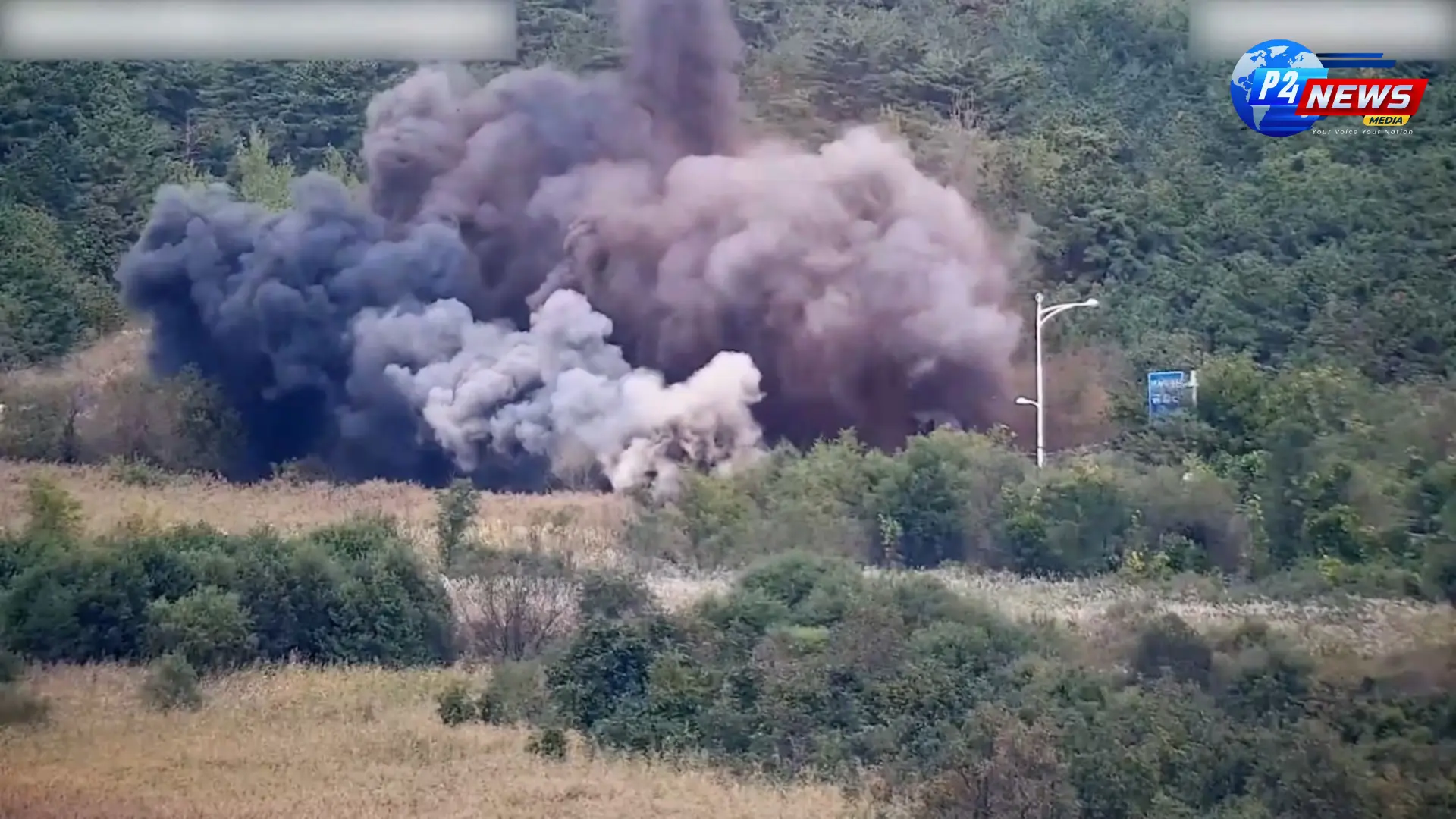North Korea has taken drastic measures by demolishing key roadways connecting to South Korea, following threats to sever all ties. This destruction symbolizes rising tensions between the two nations, especially during a period marked by intense exchanges between their leaders. Although the roads were not in use and little practical difference will be made, the act signals a significant escalation in military posturing.
Overview of Road Destruction
On Tuesday, North Korea detonated major roads linking its territory to South Korea, as confirmed by South Korean officials. The destruction targeted segments of the Gyeongui and Donghae lines, significant transport routes on both the east and west coasts. The explosions occurred around noon local time, as the tension between the two Koreas escalated, with threats exchanged from both sides.
Symbolism Over Practicality
Despite the destruction, the impact on daily operations is minimal, as these routes have not been in active use for several years. However, the symbolic weight of this act is significant, particularly when viewed in the context of heightened rhetoric between the North Korean leadership and South Korea. The ongoing animosity has been exacerbated by various provocations, including drone incidents and military exercises.
Military Reactions and Preparedness
In light of the explosions, the South Korean military transitioned to a heightened state of alert. Reports indicated that South Korean forces initiated gunfire in areas south of the military demarcation line as a precautionary response. The South has remained vigilant, closely monitoring North Korea's military activities and maintaining collaboration with the United States for strategic readiness.
Recent Provocations
The road demolitions followed North Korea’s accusations against South Korea for flying drones filled with propaganda over its capital. This exchange reflects an ongoing cycle of retaliatory measures between the two nations. The North had previously deemed South Korea's actions as provocations that warranted a strong military response.
Shift in North Korean Policy
North Korean leader Kim Jong Un’s recent statements indicate a shift from previous policies advocating for peaceful reunification. In a January speech, Kim declared that North Korea no longer seeks reconciliation, instead characterizing relations with the South as those between hostile nations. This change suggests an increasing willingness to adopt more aggressive military strategies.
Strategic Military Measures
According to statements released by the Korean People's Army, the current military situation necessitates more decisive measures to ensure national security. The North plans to completely sever remaining connections to the South, reinforcing territorial defenses by laying land mines and enhancing other fortifications along the border. This military buildup comes in response to joint military exercises conducted by South Korea and the U.S., which Pyongyang perceives as direct threats.
The Bigger Picture: Regional Stability
The recent developments underscore a troubling trend in inter-Korean relations and point to a broader regional instability. Kim Jong Un may leverage this situation to deflect attention from domestic issues, framing military strength as a response to external pressures. As the North accelerates its nuclear production and strengthens ties with Russia, the international community grows increasingly concerned about the implications of these actions.
Conclusion: The Path Ahead
The cycle of provocations and military escalations between North and South Korea reflects a deeply rooted conflict that extends back decades. With both countries stuck in a pattern of mutual hostility, the prospect for dialogue and resolution remains uncertain. The strategic decisions made during this critical period may have lasting impacts on the security landscape of Northeast Asia.
















Comments 0